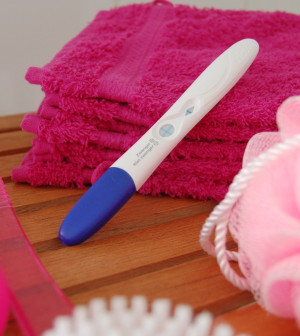- Could Your Grocery Store Meat Be Causing Recurring UTIs?
- Are You Making This Expensive Thermostat Error This Winter?
- Recognizing the Signs of Hypothyroidism
- 10 Strategies to Overcome Insomnia
- Could Artificial Sweeteners Be Aging the Brain Faster?
- Techniques for Soothing Your Nervous System
- Does the Water in Your House Smell Funny? Here’s Why
- Can a Daily Dose of Apple Cider Vinegar Actually Aid Weight Loss?
- 6 Health Beverages That Can Actually Spike Your Blood Sugar
- Treatment Options for Social Anxiety Disorder
Heart Docs: Never Expose Kids to Cigarette Smoke

A new American Heart Association statement recommends a “zero tolerance” approach for children’s exposure to secondhand smoke.
“Parents should consider making their children’s environment smoke-free because cigarette smoke exposure is harmful to children’s long-term heart health and may shorten life expectancy,” statement panel chair Dr. Geetha Raghuveer, a pediatric cardiologist, said in an AHA news release.
“Children exposed to cigarette smoke may develop early heart disease as adults, due to poorly functioning, stiffer blood vessels. Some babies who were exposed to cigarette smoke while still in the womb may be at risk for sudden death during infancy,” Raghuveer said.
Along with damaging arteries, secondhand smoke has been linked to other heart disease risk factors such as obesity, high cholesterol, and insulin resistance, which is associated with type 2 diabetes, the panel noted.
Also, children of smokers are more likely to become smokers themselves, the researchers said.
An estimated 24 million nonsmoking children and teens are exposed to secondhand smoke in the United States. That exposure is largely from parents who smoke, the panel said.
“Encouraging adults to quit smoking is a cost-effective and health-enhancing strategy that could benefit both adults and children,” said Raghuveer. She’s also a professor of pediatrics at Children’s Mercy Hospital and Clinics in Kansas City, Mo.
“Raising cigarette taxes to discourage smoking could also decrease childhood exposure,” she added.
The statement also offers suggestions for health care providers. One idea is using electronic medical records to alert doctors that a child is exposed to cigarette smoke. Doctors should also be trained in counseling and early outreach to help families protect children from secondhand smoke, the statement said.
The new statement was published Sept. 12 in the journal Circulation.
More information
The American Academy of Pediatrics has more on the dangers of secondhand smoke.
Source: HealthDay
Copyright © 2026 HealthDay. All rights reserved.










